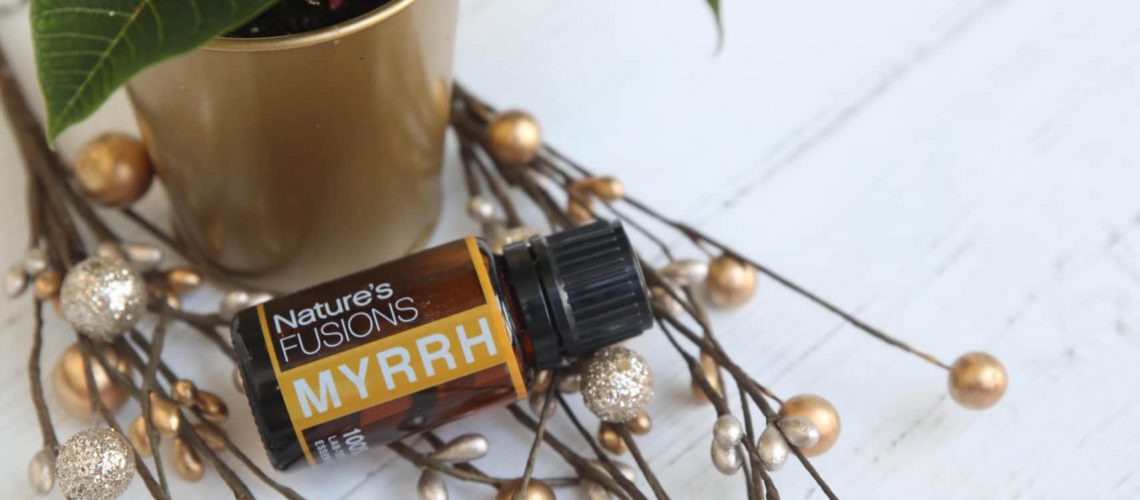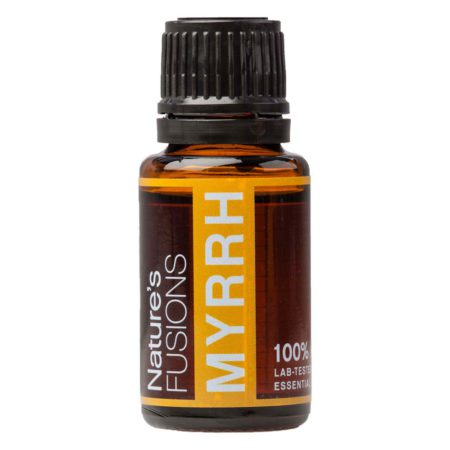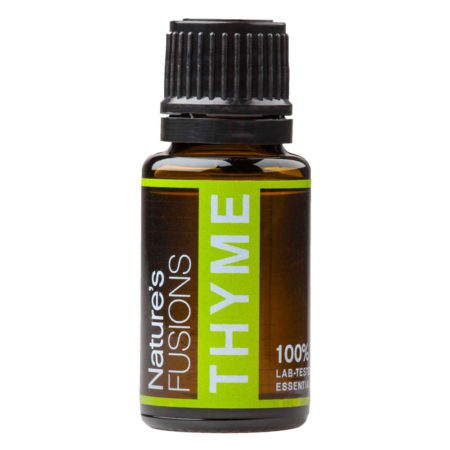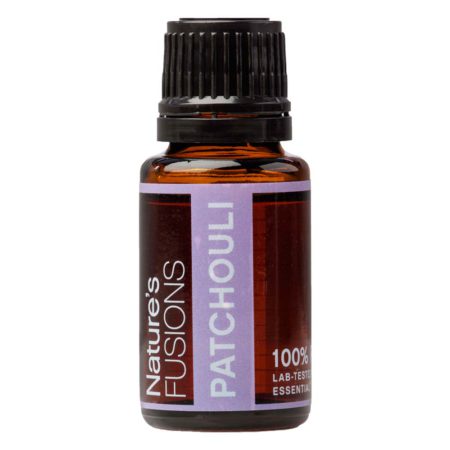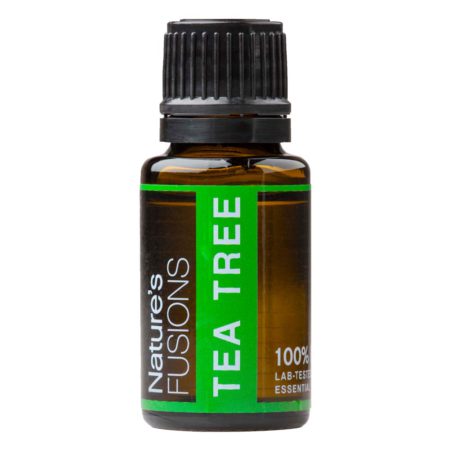Myrrh is probably best known as one of the lavish gifts that the wisemen brought to honor the baby Jesus. At the time, the myrrh trade was what made the Arabians the wealthiest people on earth. Myrrh was incredibly precious and rare, with a value higher than gold. Known for its sweet, earthy scent and long history of spiritual-enhancing properties, myrrh is still a valuable and highly prized gift that we all can enjoy.
Origins of Myrrh
Commiphora myrrha is a scrubby, spiky desert tree that originates in parts of the Mediterranean, Africa, and the Arabian Peninsula. Meaning bitter in Arabic, myrrh produces a highly valuable, aromatic resin. This is extracted by harvesters who make narrow slashes in the trees where the precious resin will then form, harden, and be painstakingly collected by hand. Because the myrrh tree grows in such a limited area, and because the extraction process is so arduous, myrrh is still quite valuable today.
History of Myrrh
Hieroglyphics on the tomb of the Egyptian Queen Hatshepsut tell the beautiful story of how myrrh came to grow in Egypt. At the time of Pharoah Thutmose the III, Queen Hatshepsut wanted to offer a priceless sacrifice to the god Amun, patron of the great pharaohs and king of the gods. Knowing the many spiritual and aromatic uses of myrrh, Hatshepsut decided to honor Amun by harvesting myrrh trees from the Land of Punt, or “the land of the gods,” which today includes the modern coastal lands of Ethiopia and Djibouti. By surrounding Amun’s temple with living myrrh, she was richly blessed by Amun to live an abundant and satisfactory life evermore. Since ancient times, myrrh has been a symbol of wealth, spirituality, abundance, and holiness.
Myrrh shows up more than once in the story of Jesus of Nazareth, as well. It came to him as an offering both at his birth and his death.
Traditional Uses of Myrrh
In myrrh’s long history with humankind, it has had a variety of uses. Historically, it was used in the embalming process because of its aromatic properties. It was also used to create rich perfumes, warm incense, holy religious ointments, and as a very expensive insect repellent. Myrrh has also long been used in China and India.
Today, people have found a multitude of uses for myrrh. Myrrh is highly prized all over the world to augment spirituality and improve focus during meditation. Myrrh also has a powerful grounding influence that can promote confidence and a more centered life. Myrrh will cleanse and beautify the appearance of skin.
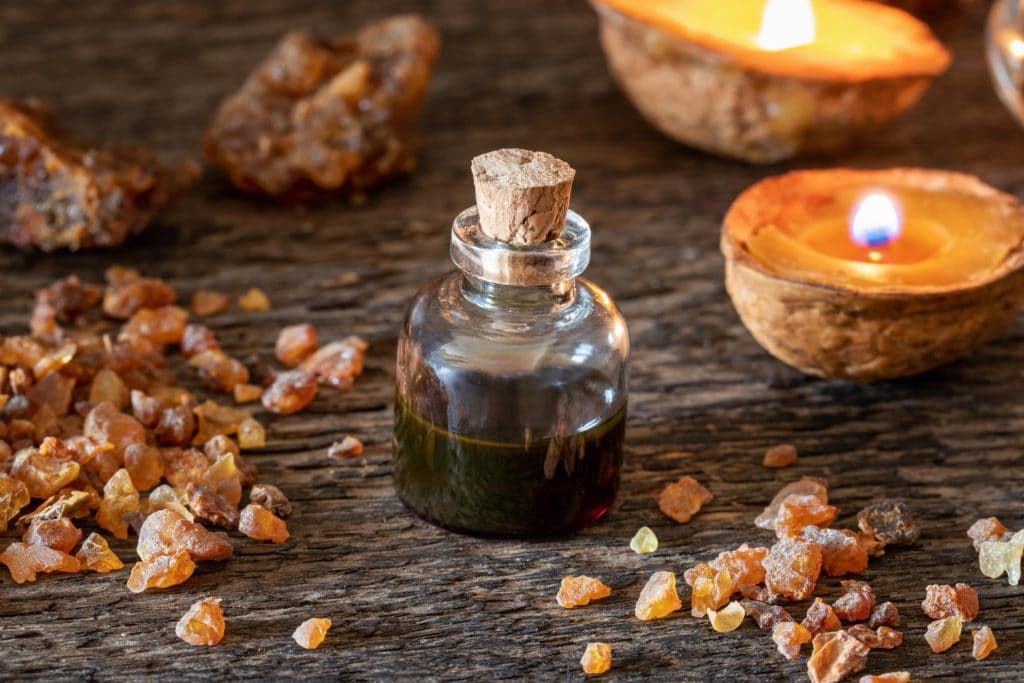
Using Myrrh
Myrrh essential oil can be safely diffused, applied to the skin, and used as part of an effective mouth rinse. Just be sure to dilute the oil with a 5% dilution rate, and DON’T swallow it. Diffuse myrrh oil when you are feeling tense or anxious. If you don’t have a diffuser, simply put a few drops of myrrh essential oil into a small pot of boiling water. Boost your daily skin cream with a tiny bit of myrrh oil. You can also dilute myrrh into your favorite carrier oil to make a roll-on applicator for blemishes. Put a few drops into a warm bath for a soothing, restorative, aromatic experience while benefiting from myrrh’s natural antioxidants. You can also use it topically or diffused when it might be your time of the month.
Myrrh is great when blended, too. Use it with Frankincense for meditation, Lavender for relaxation , Patchouli for skin care, Sandalwood for an even richer scent, Tea Tree to promote calm, and Thyme to cleanse and warm.
If you only put one oil on your Christmas wish list this year, consider Myrrh. You will run out of oil far before running out of ways to use it!

